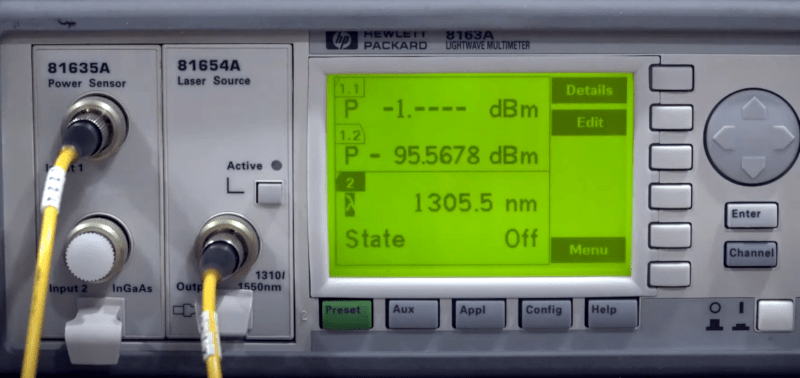You tend to think of test equipment in fairly basic terms: a multimeter, a power supply, a signal generator, and an oscilloscope. However, there are tons of highly-specialized test equipment for very specific purposes. One of these is the 8163A “lightwave multimeter” and [Signal Path] tears one part for repair in a recent video that you can see below.
If you’ve never heard of a lightwave multimeter, don’t feel bad. The instrument is a measuring system for fiber optics and, depending on the plugins installed, can manage a few tests that you’d usually use an optical power meter, a laser or light source, and some dedicated test jigs to perform.
These meters are pricey, even used, so [Signal Path] picked up one that didn’t work. If you can repair an instrument, this is a good way to build a serious test bench at low cost. Of course, there is risk that you can’t find out what is wrong or you can’t get a suitable replacement part. But often the problems with this old test equipment are pretty simple. In this case, the box powered up, but had nothing but a flickering LCD screen.
The device is hard to access, but with the main board removed, it revealed an x86 processor and a large circuit board full for components. There’s even an FPGA. Many components are not populated so the same board probably does other functions, as well.
It isn’t a common occurrence, but we’ve all had times where taking something apart mysteriously makes it work and this was one of those times. Our suspicion is that taking the cables out and putting them back in restored connections between the main board and the front panel. But who knows?
About 8 minutes in, you get a nice walk though of how the device works along with a teardown of some of the plug in modules. This is the kind of test gear you may never have need for, and it is fun to have a look at how it works both inside and outside.
It is amazing how much special test equipment is out there. Our favorite has to be the TV analyst from B&K. Some of the old space-related gear is fun to peek inside, too.
















At work we have a pile of LeCroy oscilloscopes that are functional as general-purpose but all their design is geared purely towards tuning and testing hard drives. There was an enormous market in specialized test equipment just for hard drive characterization and design.
In the eighties I spent many hours with various HP RS-232 serial analyzers. Those were the days. :-)